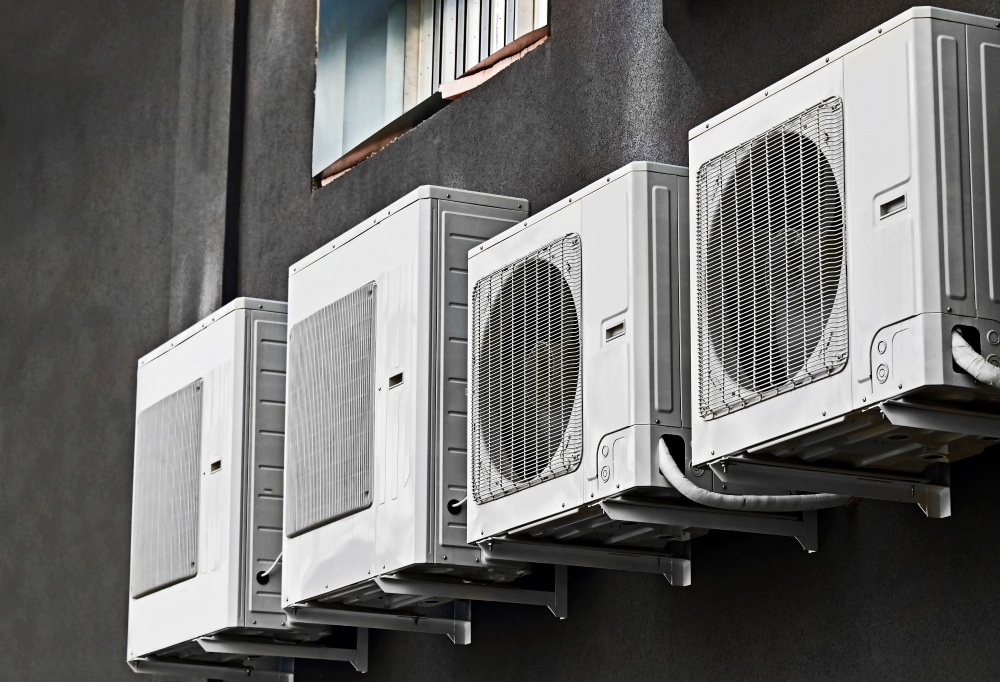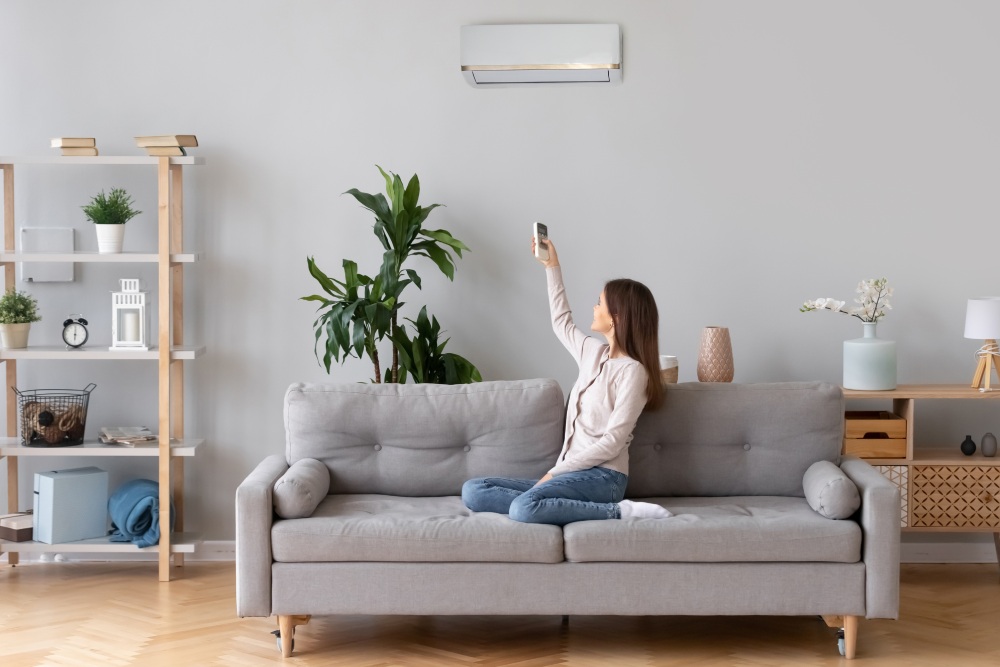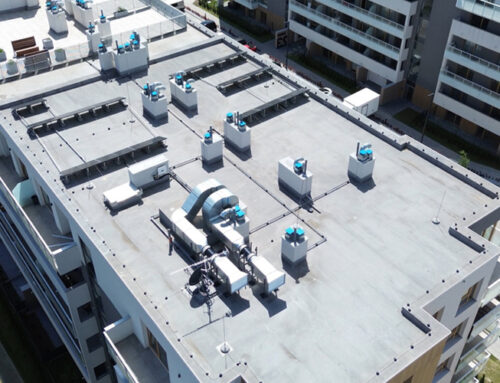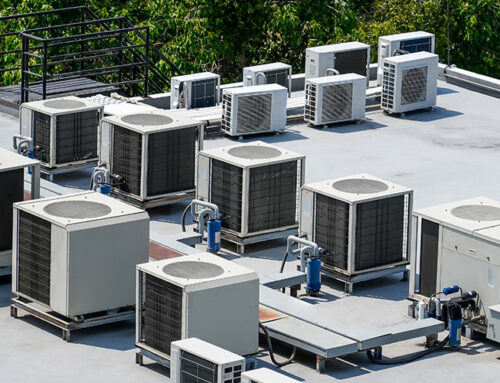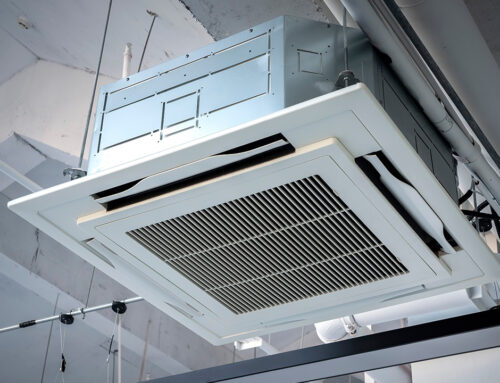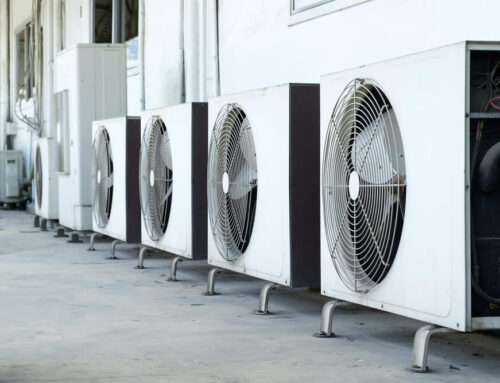In the competitive world of retail, creating a comfortable and inviting environment for customers is paramount, and commercial AC systems play a pivotal role in achieving this goal. Effective temperature control and retail HVAC solutions are integral to crafting an atmosphere where consumers feel at ease, ultimately encouraging longer visits and enhancing their overall shopping experience.
By focusing on comfort enhancement through strategic retail cooling techniques such as proper zoning and regular maintenance, retailers can significantly boost customer satisfaction and sales. This article brought to you by Chills AC will explore how commercial AC systems transform retail spaces, with insights into optimizing performance and integrating smart technology for superior temperature control.
Discover how these innovations not only elevate the shopping experience but also offer a competitive edge in the retail landscape.
The Role of Commercial AC in Retail
Creating a Welcoming Atmosphere
Commercial AC systems are crucial for establishing a welcoming atmosphere in retail spaces. When customers enter a store, the first thing they notice is the temperature. If it’s too hot or too cold, they may feel uncomfortable and leave quickly. By maintaining an optimal temperature, commercial AC systems ensure that customers feel comfortable and are more likely to stay longer. This comfort encourages browsing, which can lead to increased sales.
Moreover, a well-regulated climate can also prevent issues like humidity, which can damage products and create an unappealing shopping environment. Effective temperature control through retail HVAC solutions not only enhances the physical comfort of shoppers but also contributes to a positive brand perception, making customers more likely to return. Therefore, investing in a robust commercial AC system is essential for any retailer aiming to create a pleasant and inviting shopping experience.
Enhancing Customer Experience
Enhancing the customer experience is a critical aspect of retail success, and commercial AC systems are fundamental to this endeavor. An effective retail cooling strategy goes beyond just maintaining temperature; it creates an environment where customers can focus on shopping without being distracted by discomfort. Proper temperature control can make the shopping process more enjoyable, allowing customers to spend more time exploring products and potentially making more purchases.
Additionally, a comfortable environment can encourage repeat visits, fostering customer loyalty. By integrating advanced HVAC systems, retailers can ensure that their spaces remain consistently pleasant, no matter the external weather conditions. This reliability is key to building trust with customers. Furthermore, a positive in-store experience can enhance word-of-mouth recommendations, drawing more visitors to the location. Consequently, investing in superior commercial AC systems is not just about comfort; it’s a strategic move to enhance overall customer satisfaction and drive business growth.
Encouraging Longer Visits
Encouraging longer visits is a key benefit of deploying effective commercial AC systems in retail settings. When customers feel comfortable, they are less likely to rush through their shopping experience, allowing them more time to engage with the products and services offered. This extended time spent in-store can lead to increased sales, as customers have the opportunity to discover items they might not have initially considered.
Furthermore, a well-regulated environment can create a sense of relaxation, encouraging patrons to linger and explore. By reducing the discomfort caused by fluctuating temperatures, retailers can foster a more inviting atmosphere that naturally promotes longer visits. Additionally, strategically zoned retail HVAC systems ensure that every area of the store remains equally comfortable, preventing hot or cold spots that could drive customers away.
Ultimately, investing in quality commercial AC solutions is not only a matter of maintaining comfort but also a strategic approach to maximizing customer engagement and boosting profitability.
Key Strategies for Optimizing AC Performance
Proper Zoning Techniques
Proper zoning techniques are essential for optimizing the performance of commercial AC systems in retail environments. Zoning allows retailers to divide their store into distinct areas, each with its own specific temperature requirements. This approach ensures that different sections of the store, such as entrances, dressing rooms, and product displays, maintain optimal comfort levels. By tailoring the air conditioning to the unique needs of each zone, retailers can enhance customer satisfaction while also maximizing energy efficiency.
For instance, zones with higher foot traffic may require different cooling settings compared to less frequented areas. Implementing a zoning strategy reduces energy waste by concentrating cooling efforts only where needed, leading to lower utility costs. Moreover, zoned systems can often be controlled remotely or programmed for specific times, adding another layer of convenience and efficiency.
Overall, proper zoning not only improves the shopping experience by maintaining consistent comfort but also supports sustainable and cost-effective operations.
Regular Maintenance Practices
Regular maintenance practices are crucial for ensuring the longevity and efficiency of commercial AC systems in retail settings. Scheduled maintenance helps identify and address potential issues before they escalate into costly repairs or system failures. Routine tasks include cleaning or replacing air filters, inspecting ductwork for leaks, and checking refrigerant levels. These practices ensure that the system operates optimally, maintaining consistent temperature control across the retail space. Regular maintenance also improves indoor air quality by preventing dust and allergens from accumulating within the system.
Additionally, well-maintained AC systems consume less energy, leading to reduced utility bills and a smaller environmental footprint. Retailers can benefit from establishing a maintenance schedule that aligns with the manufacturer’s recommendations, thus ensuring the system’s warranty remains valid. By investing in regular upkeep, retailers not only enhance comfort for their customers but also protect their investment, ensuring reliable performance that supports a positive shopping experience.
Integration of Smart Technology
The integration of smart technology into commercial AC systems is a game-changer for retailers looking to optimize performance and enhance customer comfort. Smart thermostats and sensors provide precise control over temperature settings, allowing retailers to adjust conditions in real-time based on occupancy and weather changes. These technologies can learn usage patterns and make automatic adjustments to maintain ideal conditions while minimizing energy consumption. Additionally, remote monitoring capabilities enable store managers to track and manage the system from anywhere, ensuring consistent comfort across different store locations.
By utilizing smart technology, retailers can also receive alerts for maintenance needs, preventing unexpected breakdowns and ensuring uninterrupted service. The data collected from these systems can offer valuable insights into customer behavior and energy usage, allowing for more informed decision-making. Ultimately, integrating smart technology not only enhances the efficiency and effectiveness of retail HVAC systems but also supports a more sustainable and customer-focused business model.
Impact on Sales and Customer Satisfaction
Boosting Sales Through Comfort
Creating a comfortable shopping environment with effective commercial AC systems can significantly boost sales in retail spaces. When customers feel at ease, they are more likely to spend time exploring the store, which increases the likelihood of making a purchase. Comfort enhancement directly impacts the shopping behavior by reducing the distractions caused by uncomfortable temperatures. A pleasant atmosphere encourages customers to browse more extensively and consider items they might otherwise overlook.
This increased engagement can lead to impulse buys and higher transaction values. Furthermore, a consistently comfortable environment fosters positive customer experiences, which are crucial for building brand loyalty. Satisfied customers are more inclined to return and recommend the store to others, driving new foot traffic and repeat business.
By prioritizing comfort through reliable temperature control, retailers not only enhance the shopping experience but also create a sales-boosting strategy that leverages the direct connection between customer comfort and purchasing decisions.
Increasing Customer Satisfaction
Increasing customer satisfaction is a vital goal for any retailer, and effective commercial AC systems play a significant role in achieving it. A comfortable shopping environment directly influences how customers perceive their experience in the store. When the temperature is just right, customers are more relaxed and can focus on their shopping without the distraction of discomfort. This positive experience makes them more likely to feel satisfied with their visit, increasing the probability of repeat business.
Moreover, satisfied customers are more inclined to share their positive experiences with others, contributing to word-of-mouth marketing that can attract new customers. A retailer’s commitment to maintaining optimal conditions through reliable retail HVAC solutions can also enhance their reputation as a customer-centric business.
By prioritizing temperature control and comfort enhancement, retailers not only improve immediate customer satisfaction but also build long-term loyalty, creating advocates who support sustained business growth. Thus, the impact of effective climate control extends far beyond immediate comfort, influencing overall customer happiness and business success.
Reducing Energy Costs
Reducing energy costs is a significant benefit of optimizing commercial AC systems in retail spaces. By implementing efficient retail HVAC solutions, retailers can maintain a comfortable environment while minimizing energy consumption. Technologies such as variable speed motors, smart thermostats, and zoning systems allow for precise control over temperature and airflow, reducing unnecessary energy use. Regular maintenance practices, including cleaning filters and inspecting ductwork, ensure the system operates at peak efficiency, further cutting down on energy costs.
Additionally, the integration of smart technology provides real-time data and automated adjustments, optimizing energy use based on occupancy and external weather conditions. These measures not only lower utility bills but also contribute to a smaller carbon footprint, aligning with sustainable business practices.
Case Studies of Successful Implementations
Retail Chains Leading the Way
Retail chains that have successfully integrated advanced commercial AC systems demonstrate the substantial benefits of investing in comfort and efficiency. For instance, major retailers like Target and Walmart have adopted smart HVAC technologies to optimize their store environments. These chains utilize automated systems that adjust to real-time conditions, ensuring consistent comfort while reducing energy consumption.
By implementing zoning strategies, they tailor the climate control to different areas within their stores, addressing the specific needs of high-traffic zones versus quieter sections. This strategic approach not only enhances the shopping experience but also significantly cuts down operational costs.
In doing so, these retailers set a benchmark for others in the industry, showcasing the importance of prioritizing customer comfort alongside sustainability. The successful adoption of these systems proves that investing in innovative retail cooling solutions can lead to improved customer satisfaction, increased sales, and reduced energy expenditures, providing a competitive edge in the retail landscape.
Small Business Success Stories
Small businesses have also seen remarkable benefits from implementing advanced commercial AC systems. For example, a boutique clothing store in a bustling downtown area optimized its retail HVAC system by incorporating smart thermostats and zoning techniques. This allowed the store to maintain ideal temperatures in dressing rooms, display areas, and entryways, each with specific cooling needs. As a result, customers enjoyed a consistently comfortable shopping environment, which encouraged longer visits and increased sales. Another success story involves a local coffee shop that installed an energy-efficient AC system.
By regularly maintaining their system and using smart technology to monitor and adjust temperatures, they significantly reduced their energy bills. These savings were then reinvested into improving the shop’s ambiance and product offerings, attracting more customers. These examples demonstrate that even small businesses can achieve significant gains in customer satisfaction, sales, and operational efficiency by prioritizing effective retail cooling solutions.
Lessons Learned and Best Practices
From the successful implementation of commercial AC systems in both large retail chains and small businesses, several key lessons and best practices emerge. First, the importance of regular maintenance cannot be overstated. Routine checks and timely repairs ensure that HVAC systems operate efficiently, reducing the risk of unexpected breakdowns. Second, the adoption of smart technology offers significant advantages in terms of precise temperature control and energy savings.
Businesses that leverage smart thermostats and sensors can optimize their cooling strategies in real-time, adapting to changing conditions and customer flow. Third, proper zoning techniques are essential for maintaining consistent comfort throughout the retail space. By tailoring cooling efforts to specific areas, businesses can enhance customer satisfaction while minimizing energy waste. Lastly, investing in high-quality, energy-efficient systems pays off in the long run by lowering operational costs and improving the overall shopping experience.
These best practices illustrate how strategic investment in retail HVAC solutions can lead to substantial benefits across various aspects of the business.
Choosing the Right Retail HVAC Services
Evaluating Service Providers
When choosing retail HVAC services, evaluating potential service providers is crucial to ensure optimal system performance and customer satisfaction. Start by considering a provider’s experience and expertise in handling commercial AC systems, specifically within retail environments. Look for companies with a proven track record and positive client testimonials. It’s also important to assess the range of services offered, including installation, maintenance, and emergency repairs.
A comprehensive service package can save time and money in the long run. Additionally, inquire about the provider’s approach to energy efficiency and smart technology integration, as these are key components of modern retail cooling solutions. Comparing quotes from multiple providers can help ensure competitive pricing, but remember that the cheapest option isn’t always the best. Prioritize quality, reliability, and customer support.
Finally, verify credentials and certifications to ensure compliance with industry standards. Making an informed decision in selecting an HVAC service provider will contribute to a comfortable shopping environment and sustained business success.
Benefits of Professional Installation
Opting for professional installation of retail HVAC systems brings numerous advantages that can enhance system efficiency and longevity. Professional installers possess the technical expertise and experience necessary to ensure that the system is set up correctly, adhering to all safety and industry standards. This reduces the risk of future malfunctions and costly repairs. Proper installation also ensures optimal system performance, as experts can accurately size and configure the system to match the specific needs of the retail space.
Additionally, professional installers can incorporate advanced features, such as smart technology and zoning, to maximize energy efficiency and temperature control. They can also provide valuable insights and recommendations for ongoing maintenance and system upgrades. Moreover, many professional installations come with warranties or service guarantees, offering peace of mind to business owners. In the long run, investing in professional installation helps retailers maintain a comfortable and efficient shopping environment, ultimately supporting sales and customer satisfaction.
Why Choose Chills AC Services
Choosing Chills AC Services for your retail HVAC needs offers numerous advantages that underpin reliable and efficient climate control. With a wealth of experience in the commercial AC sector, Chills AC Services specializes in providing tailored solutions that meet the unique demands of retail environments. Their team of skilled technicians is well-versed in the latest HVAC technologies, ensuring efficient installations and seamless integration of smart features for precise temperature control.
Chills AC Services prioritizes customer satisfaction by offering comprehensive service packages that include regular maintenance and emergency support, minimizing downtime and maximizing system efficiency. They are committed to energy-efficient solutions, helping retailers reduce operational costs while maintaining optimal comfort levels.
Chills AC Services also prides itself on transparent pricing and strong customer relationships, ensuring clients receive value and peace of mind. For retailers looking to enhance their shopping environment and boost customer satisfaction, Chills AC Services stands out as a reliable and innovative partner.

